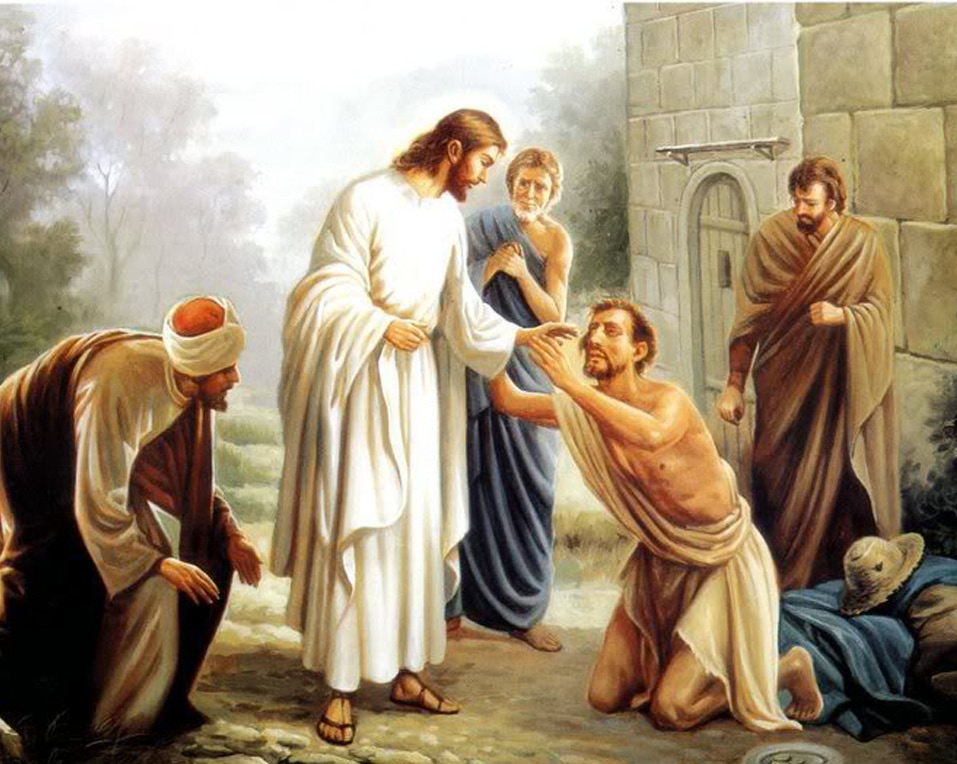The Lord helps us see things in their true light
Imagine this: a large crowd gathered at an airport during an emergency evacuation. People are rushing to board the last flight out of a danger zone.
Oct 26, 2024

30th Sunday in
Ordinary Time (B)
Readings: Jeremiah 31:7-9;
Hebrews 5:1-6;
Gospel: Mark 10:46-52
Imagine this: a large crowd gathered at an airport during an emergency evacuation. People are rushing to board the last flight out of a danger zone. But amidst the panic, rescuers spot an elderly woman in a wheelchair, struggling to make it through. Instead of passing by, they stop, make room for her, and ensure she gets on that flight, even though the plane is nearly full. This act of compassion reminds us that in times of crisis, no one should be left behind.
In the scripture readings, we see the work of redemption as a journey where no one is forgotten. This is described as a new Exodus, a pilgrimage where the weak, sick, and helpless are all invited to join. The First Reading, from the Prophet Jeremiah, tells of the gathering of the scattered Israelites from exile—a new Exodus. The language of this reading refers to the exiles Israel underwent, always involving exile to the “north” of the Promised Land. Jeremiah is addressing the Babylonian exile in particular. The Israelites were exiled due to their sins, just as sin alienates us from God and others. This new Exodus represents not just a physical journey, but a spiritual one, where even the most vulnerable will make it. Mothers with their children, the blind, the lame — everyone will be able to join because God Himself will make their way smooth. Water will flow abundantly for them, not like the harsh conditions of the first Exodus from Egypt. And yet, not everyone returns. Those who stay behind do so because they choose not to come, not because the journey is too hard. They let the opportunity pass.
Jeremiah also describes the remnant returning as an immense throng. The faithful remnant of Israel was the seed from which the new People of God, the Church, began.
This prophecy does not just refer to the return of the Israelites from the Babylonian exile; it also looks forward to the Church assembling and heading in pilgrimage to the Holy Land.
In the Second Reading, from the Letter to the Hebrews, we are reminded that Jesus, our High Priest, became one of us to lead us on this journey of reconciliation. In becoming human, He knew firsthand the struggles of living in a fallen world. He felt the weakness of our condition. And because He understands our struggles, He is the bridge between us and God. Through Him, our humanity is restored, and we are reconciled with God.
Then, in the Gospel, we see this prophecy unfolding. Jesus begins to gather the people, healing them, leading them, and restoring their sight — both physically and spiritually. The crowds are following Him out of Jericho, a city often associated with sin. In Biblical symbolism moving away from Jericho is often considered as symbolic journey away from sin, especially when heading towards Jerusalem. In the middle of this excitement, there is Bartimaeus, a blind beggar. Stuck in his blindness, he can’t follow Jesus on his own. But when he hears that Jesus is passing by, he cries out for mercy. Even though the crowd tries to silence him, he persists, and Jesus responds. Jesus not only restores Bartimaeus’ sight but invites him to join the journey.
The blindness of Bartimaeus is symbolic. Though physically blind, he sees more clearly than those around him. The crowd, blinded by their assumptions, tries to quiet him. But Bartimaeus sees what they do not: the opportunity to be healed and to follow Jesus.
In the Gospel, Our Lord helps Bartimaeus to see things in a new light, but he also helps his disciples see things in a new light as well. You may have come across on the Internet, videos of little children with impaired vision putting on glasses for the first time: sometimes they fuss as the glasses are put on, but their faces go from confusion, to wonder, to joy! There are also videos of adults suffering from colour blindness who receive as a gift from their loved ones a pair of glasses that, unbeknownst to them, corrects their colour blindness. Imagine seeing the world in colour for the first time. It’s not by chance that Our Lord calls himself the Light of the World. He helps us see things in their true light.
There are moments when we, too, are blind—blind to the needs of others or even blind to our own need for healing. We can get stuck, unsure of how to move forward. Like Bartimaeus, we need to cry out to Jesus for mercy, asking Him to restore our sight and help us see the way forward. Jesus, the Light of the World, helps us see things as they really are and shows us the path we are meant to walk.
In life’s journey, no one is meant to be left behind. Just as the rescuers made room for the elderly woman at the airport, Jesus makes room for each of us, no matter our condition. And just as He did for Bartimaeus, He offers us new sight, a new way to live, and the opportunity to join Him on the journey of redemption. Let us follow Him and ensure that no one is left behind.







Total Comments:0